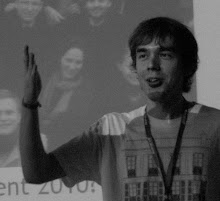
The famous Encyclopedia Britannica is definitely the biggest on-line competitor to Wikipedia, although the two projects operate on a different basis. Wikipedia is edited and expanded by massive crowds and thus covers a great deal of topics in detail but with limited reliability, whereas Britannica prefers quality to quantity, allowing only paid experts to contribute.
As Jorge Cauz, president of Encyclopedia Britannica stated on the corporate blog:
"We believe that the creation and documentation of knowledge is a collaborative
process but not a democratic one."
Although I welcome massive collaboration, I must also agree with this opinion. The dangers of Wikipedia - public myths becoming truth - won't go anywhere if we close our eyes.
But Britannica recently realized that it is impossible to manage and keep up to date the huge amounts of knowledge with only "a few" experts on board. Now it is slowly opening up, allowing registered users to suggest edits, which then have to be reviewed by paid experts before displaying on the webpage. An ideal way to increase quantity while maintaining quality? Maybe...
Don't forget, that Britannica is a pure business, while Wikipedia a non-profit organization. Most of Britannica's content is limited to users with paid premium accounts and the website is full of advertisements. The question is, what will motivate people to contribute, when they know, that their friends mostly without premium accounts won't be able to view their texts and some businessmen will make money thanks to their volunteer work?
So far, Britannica offers only one reward - your name in the list of authors below each article. I believe that this, accompanied by sense of contribution to the community, is not enough. Further restructuring of their business model will be necessary if Britannica wants to be successful. Why not to pay some money for reviewed contributions and make this business come full circle?

